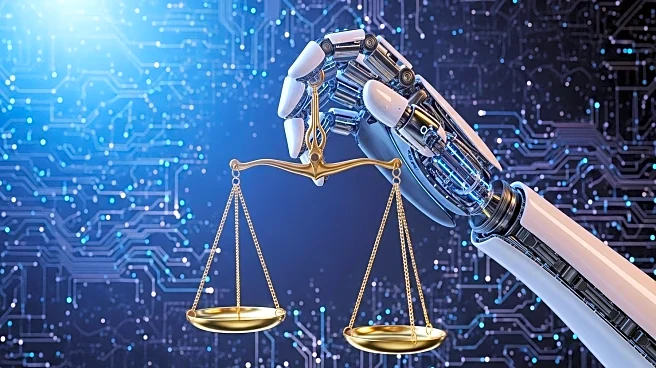What's Happening?
The legal profession is undergoing significant changes as top U.S. law firms integrate artificial intelligence into their operations. Five of the ten largest firms by revenue have shared insights with Business Insider on how AI is being utilized to enhance efficiency and accuracy in legal work. This adoption of AI technology is part of a broader trend within the industry to leverage advanced tools for tasks such as document review, legal research, and case analysis, aiming to streamline processes and reduce costs.
Why It's Important?
The integration of AI in legal practices represents a pivotal shift in how law firms operate, potentially leading to increased productivity and reduced overhead costs. By automating routine tasks, firms can allocate more resources to complex legal issues, improving client service and outcomes. This technological advancement may also influence the competitive landscape, as firms that effectively harness AI could gain a significant advantage. Additionally, the move towards AI reflects a growing acceptance of technology in traditionally conservative sectors, signaling broader changes in professional services.
What's Next?
As AI becomes more entrenched in legal practices, firms will likely continue to explore new applications and refine existing systems. This could lead to further innovations in legal technology, potentially transforming how legal services are delivered. Stakeholders, including clients and regulatory bodies, will be monitoring these developments closely to assess their impact on service quality and ethical considerations. The ongoing evolution of AI in law may also prompt discussions around data security and privacy, as firms handle sensitive information.
Beyond the Headlines
The adoption of AI in law firms raises important ethical and legal questions, particularly concerning data privacy and the potential for bias in AI algorithms. As firms increasingly rely on technology, they must ensure compliance with privacy regulations and address concerns about algorithmic fairness. This shift also highlights the need for ongoing education and training for legal professionals to effectively use AI tools. The long-term implications could include changes in legal education and professional standards, as the industry adapts to new technological realities.









